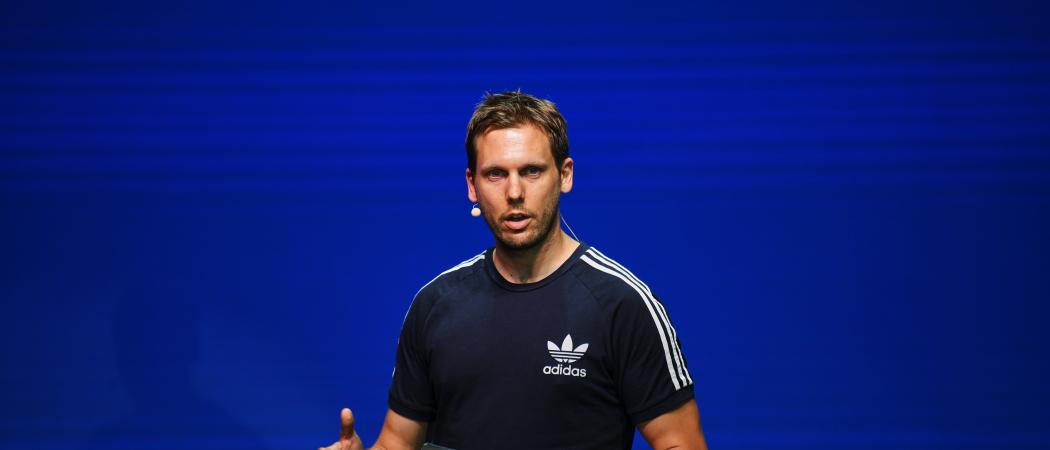Start-ups in central and eastern Europe get a helping hand to sell their products and services to larger companies in the region

Gergely Böszörményi-Nagy, CEO of Design Terminal
One way to stop the exodus of start-ups and entrepreneurs from central and eastern Europe is to convince the ever-growing pool of large companies in the region to buy innovative products and services from them.
But while Europe is peppered with agencies promising to connect start-ups to large corporate clients and investors, “We see that a huge majority of these initiatives are failing,” says Gergely Böszörményi-Nagy, CEO of Design Terminal, which has a new approach to mentoring emerging companies.
From trendy offices in the prosperous Buda hills of Budapest, Böszörményi-Nagy and his 20 staff are taking a new approach, helping entrepreneurs demonstrate exactly how their innovations can fit into – and benefit - the complex business processes of large companies and government organisations.
It’s most recent success is Aeriu, which has developed software for commercially available drones. After Aeriu CEO Gergely Ellenrieder entered Design Terminal’s mentoring programme in 2018 he succeeded in signing a contract with Swedish furniture retailer IKEA, to help it manage large logistics centres in central Europe.
This an example of the type of problem Böszörményi-Nagy wants to help large companies in the region solve with the products and services developed by the start-ups mentored by Design Terminal.
The V4 mentoring programme is financed by the Visegrad Fund, a small fund originally dedicated to cultural cooperation between the Czech Republic, Hungary, Poland and Slovakia that has moved into supporting start-ups and setting common agendas for research and innovation.
Design Terminal is also part of the “V4 Startup Force”, an alliance of four leading start-up accelerators from each country in the group.
Introducing start-ups to corporations is very important, Böszörményi-Nagy said, but it's the easiest part of the job. “The hard part is the cultural facilitation.”
While Design Terminal mentors start-ups from all over the world, it has a strong focus on central eastern Europe. Through its mentoring programme , the company wants to match the most promising start-ups from across the Baltics to the Western Balkans with large organisations that are dependent on innovation but don't have direct access to start-ups and outside sources of innovation.
In the case of Aeriu, the “laser sharp focus” of the company was key to its success, said Böszörményi-Nagy. “This is a great example of what we are looking for: really ambitious agile teams looking for paying clients in the global innovation space.”
Design Terminal doesn’t take equity in the start-ups it helps connect to large clients. In the case of Aeriu, getting the IKEA contract was the cherry on top of their mentoring journey.
But Design Terminal also works the other way around, helping large partner companies find innovations in start-ups springing up in the region. Companies sponsor hackathons, bootcamps and other mentoring and incubation programmes at Design Terminal, which help them source innovations from top start-ups in the region.
Start-up exodus
A recent survey of the founders of start-up companies in Europe shows countries in central and eastern Europe lose more entrepreneurs than they gain. It is estimated that about 16 per cent of start-up founders in central and eastern Europe chose to move to western Europe.
But for Böszörményi-Nagy, the mantra that tech talent is leaving eastern Europe should be questioned. “I don't want to say that brain drain is not a challenge, but I also think that a lot of promising entrepreneurs are still here, or actually coming back,” he said.
Central Europe has its own regional multinationals and international companies with headquarters in the region. Böszörményi-Nagy believes it is the role of Design Terminal to educate these companies that there is value in working with innovative start-ups. “It's cost effective, fast, and potentially advantageous for them,” he said.
Polish, Slovak, Czech, and Hungarian multinationals are slowly beginning to work with start-ups in the region. To fend off the negative effects of brain drain, but also to strengthen the start-up ecosystem, central Europe has to build up own value chains.
Concerted action in Visegrad Four
The recent shift of the Visegrad Fund towards innovation projects is one sign of shifting priorities in the region. Teaming up to form a market of about 160 million people would help companies to scale-up faster and find more potential clients. “These countries are way stronger if we see them as a single market,” said Böszörményi-Nagy.
At the moment, the V4 Startup Force is mainly focusing on business process innovation, but the four countries are planning another project, which will be entirely focused on new companies with original, ground-breaking innovations in the pipeline.
“We have to build up capacities to produce more deep tech and R&D-based companies in the region,” said Böszörményi-Nagy.
Design Terminal is also planning to move into neighbouring countries outside the Visegrad group, where Böszörményi-Nagy hopes to have clients the coming year.
“We learned from the west that networking is everything, so we have to build networks between these countries in the business life,” he said.





 A unique international forum for public research organisations and companies to connect their external engagement with strategic interests around their R&D system.
A unique international forum for public research organisations and companies to connect their external engagement with strategic interests around their R&D system.